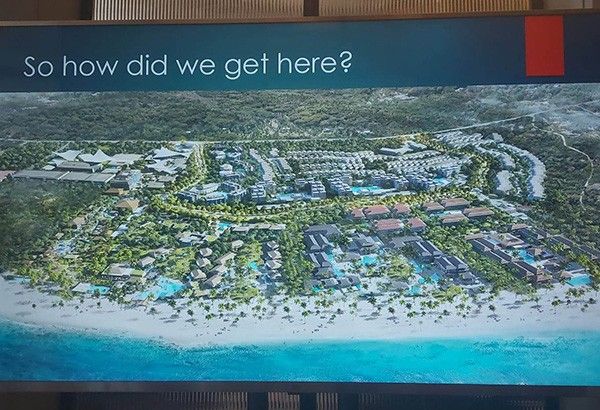High-rises near beaches threaten turtles, biodiversity — sustainable design experts

SINGAPORE — If there is a good thing the COVID-19 pandemic brought to Bohol, it is that the lights off in beaches during lockdowns made sea turtles flourish again – a phenomenon that has not been seen in 20 years, said Bohol resident and Alturas Group Director Hope Uy.
“This beachfront reminded me of the turtle hatchlings. Actually, they hatch when you turn off the lights at the beach,” Uy told reporters at a recent Singapore presser.
According to her, since the pandemic, the site of Alturas Group’s Panglao Shores development has discovered five turtle hatchlings and two months ago, a new one was found, which has not happened in the area for the past 20 years.
To protect the hatching sites, Uy is making sure that turning off the lights every night would be part of Panglao Shores development’s sustainability rule book - design guidelines that give their present and future partners a yardstick for a low-density development.
“Bohol is among the most biodiverse places in the planet. There’s more biodiversity in here than in the Mediterranean and the whole of Japan. And a lot of species here are very, very sensitive,” said Bill Barnett of C9 Hotelworks Company Limited, one of the property’s master planners.
“Tarsiers are among the most sensitive species on Earth, but again, if it somehow manages to survive and be self-sufficient, then we really need to have respect for the future and so that all species there, including humans, will continue to thrive…”
RELATED: 'Bring people back to the provinces': New Bohol development to defy urbanizing island cities
Panglao Shores sits in the former Bohol Beach Club, which Hope’s family bought since her father is like a brother to the owner. After acquiring the property, Hope participated in collecting empty packets of shampoo and conditioner from the property for recycling, and this kick-started her love for upcycled designs. Her passion for sustainability was born.
“I’ve always been an advocate for that ever since I was little as well. I was always aware of how we are to take care of the world, care for the oceans. In fact, I was a witness growing up to that and this generation should be like that as well,” she explained.
Barnett revealed that the Alturas Group received huge offers from developers provided that they drop their sustainability rule book, but the family declined and stuck with a “polite engineering approach” of zoning even wildlife habitats.
“Foreign developers had approached the owners to build 20-storey towers. But the owners said, ‘We’d not do that. Find another place. That’s not why we’re here’," he shared.
“(If a) 10-storey building is sitting so close to the beach, no turtle’s gonna come. But with low-rise development with some management, we can actually live in the same environment.”
Panglao Shores is to have a maximum of four floors in its resort, residential and retail buildings, and a low-rise development is not only easier to manage; it also has less population and also less impact to the environment, said John Farrell, Director of sustainable design firm XCO2, one of the master planners.
“If you build high-rises close to the shore, it’s not just the people. Turtles also come to this beach,” he explained. “We want them to keep on coming in 50, 60 years’ time. (If you’ll have) 10 storeys, they’ll stop coming. So the lower the development still allows us to live in synchronicity with them.”
The key, he noted, is to strike a balance between guests’ and Mother Nature’s comfort: “We don’t want to compromise quality too much but at the same time, we need to keep it sustainable.”
“We respect the land so much (that) we’d like to have a healthy caring capacity in this development,” stressed Uy. “In fact, it’s a 50-hectare property, but we’d like it to be very controlled in the number of houses, residential, and the number of hotel rooms.”
In an exclusive interview with Philstar.com, Uy said the local government is very supportive of the 50-year-old Alturas Group’s 10-year development and what it stands for.
“Panglao is still a treasure to Bohol in general,” she enthused. “They’re friends (local government), they’ve always been a friend, so for 50 years in this business in Bohol, they do like how we’re being a good neighbor to the community.”





















